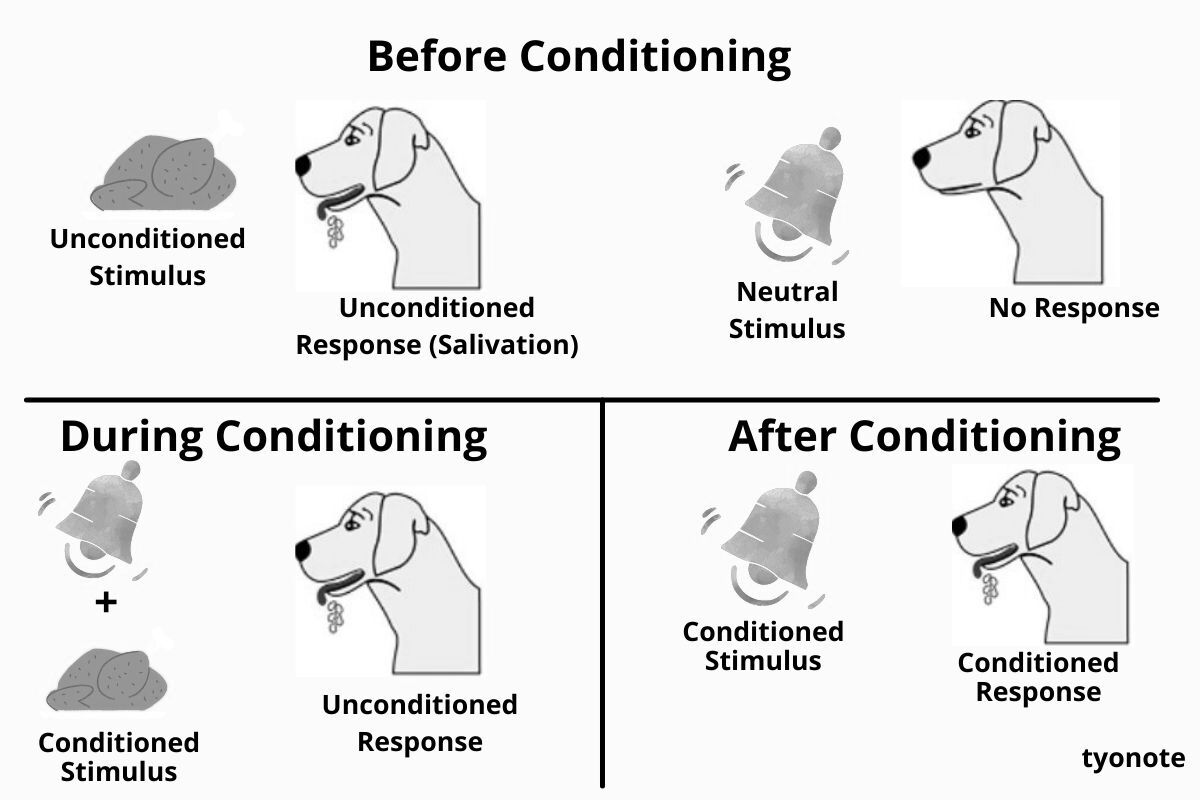Introduction
The mental model of Pavlovian Association, derived from Ivan Pavlov’s famous experiments on conditioning, plays a significant role in decision-making processes. This concept refers to the human tendency to form automatic associations between stimuli and responses based on repeated experiences or conditioning. Anchored in human psychology, Pavlovian Association influences our day-to-day lives by shaping our perceptions, preferences, and decision-making. In this blog post, we delve into the definition of Pavlovian Association, its relevance in decision-making, its prevalence in different contexts, examples of its occurrence in personal life decisions, business scenarios, and public policy-making, the mental biases contributing to this fallacy, strategies to identify and avoid succumbing to Pavlovian Association, and the implications of awareness and active avoidance of this mental trap.
Defining Pavlovian Association and Its Relevance in Decision-Making
Pavlovian Association refers to the process by which a conditioned stimulus becomes associated with a particular response or outcome due to repeated pairings. It highlights the automatic and involuntary nature of our cognitive and behavioral associations. In decision-making, Pavlovian Association influences our preferences, biases, and actions by linking certain stimuli or cues with positive or negative outcomes. These associations can impact our choices, often leading to irrational decisions that are contrary to our best interests.
Anchoring Pavlovian Association in Human Psychology and Its Prevalence in Daily Life
Pavlovian Association is deeply rooted in human psychology, particularly in our capacity for associative learning and the formation of automatic responses. Our brains are wired to recognize patterns, link stimuli to outcomes, and make rapid associations based on past experiences. In our daily lives, Pavlovian Association manifests in various contexts, from personal life decisions to business scenarios and public policy-making.
Examples of Pavlovian Association in Different Contexts
- Personal Life Decisions: Consider a person who had a negative experience with a particular brand of clothing. Due to the Pavlovian Association, they may develop a negative bias and automatically associate that brand with poor quality. As a result, they might consistently avoid purchasing any products from that brand, even if the quality of their offerings has improved over time.
- Business Scenarios: In the business world, Pavlovian Association can influence consumer behavior. For instance, a fast-food chain might pair their advertisements with images of mouthwatering food to create a positive association between their brand and deliciousness. As a result, consumers might develop an automatic preference for that particular chain over others, even if the taste and quality of the food are comparable.
- Public Policy-Making: Pavlovian Association can also impact public policy-making. Politicians or policymakers can strategically associate certain words or phrases with positive emotions or values to shape public opinion. By consistently linking terms like “freedom” or “security” with their proposed policies, they can evoke positive associations and garner support, even if the policies themselves may have questionable outcomes.
Mental Biases and Psychological Underpinnings of Pavlovian Association
Several mental biases contribute to the occurrence of Pavlovian Association. The mere exposure effect, for instance, describes our tendency to develop a preference for familiar stimuli. When a conditioned stimulus is repeatedly presented, it becomes familiar, leading to positive associations and influencing our decision-making. Additionally, confirmation bias can reinforce Pavlovian Association by selectively focusing on information that supports our existing associations, while ignoring contradictory evidence.
Practical Strategies to Avoid Succumbing to Pavlovian Association
- Develop Cognitive Awareness: Cultivate an awareness of your automatic associations and biases. Pay attention to the underlying conditioning that may be influencing your decision-making process. Recognize that associations formed through repetition may not always reflect the true value or objective quality of the stimuli involved.
- Seek Diverse Perspectives: Actively seek out diverse information and alternative viewpoints. Engaging with different perspectives helps challenge automatic associations and promotes more balanced decision-making. Consider the full range of evidence and options available, rather than relying solely on conditioned responses.
- Practice Mindfulness: Engaging in mindfulness practices can help you become more present and aware of the current context, reducing the influence of automatic associations. Mindfulness allows you to make decisions based on the immediate situation rather than relying on past conditioning.
- Encourage Critical Thinking: Encourage critical thinking skills in yourself and others. Evaluate information objectively, question assumptions, and examine the underlying evidence. By fostering a habit of critical thinking, you can avoid being swayed solely by automatic associations.
Implications of Overcoming Pavlovian Association
Overcoming Pavlovian Association has significant implications for decision-making. It allows for more objective evaluations of options, reduces the impact of biased associations, and promotes rational decision-making aligned with our true interests. By recognizing and actively challenging automatic associations, we can make decisions that are based on a comprehensive analysis of the available information.
Conclusion
Pavlovian Association is a powerful mental model rooted in human psychology that profoundly affects decision-making processes. By understanding its definition, prevalence, and examples in different contexts, as well as the mental biases contributing to it, individuals can identify when they are succumbing to this fallacy. Through strategies like cognitive awareness, seeking diverse perspectives, practicing mindfulness, and encouraging critical thinking, individuals can avoid the pitfalls of Pavlovian Association and make more objective decisions. Awareness and active avoidance of this mental trap pave the way for informed choices and better outcomes in various areas of life.
